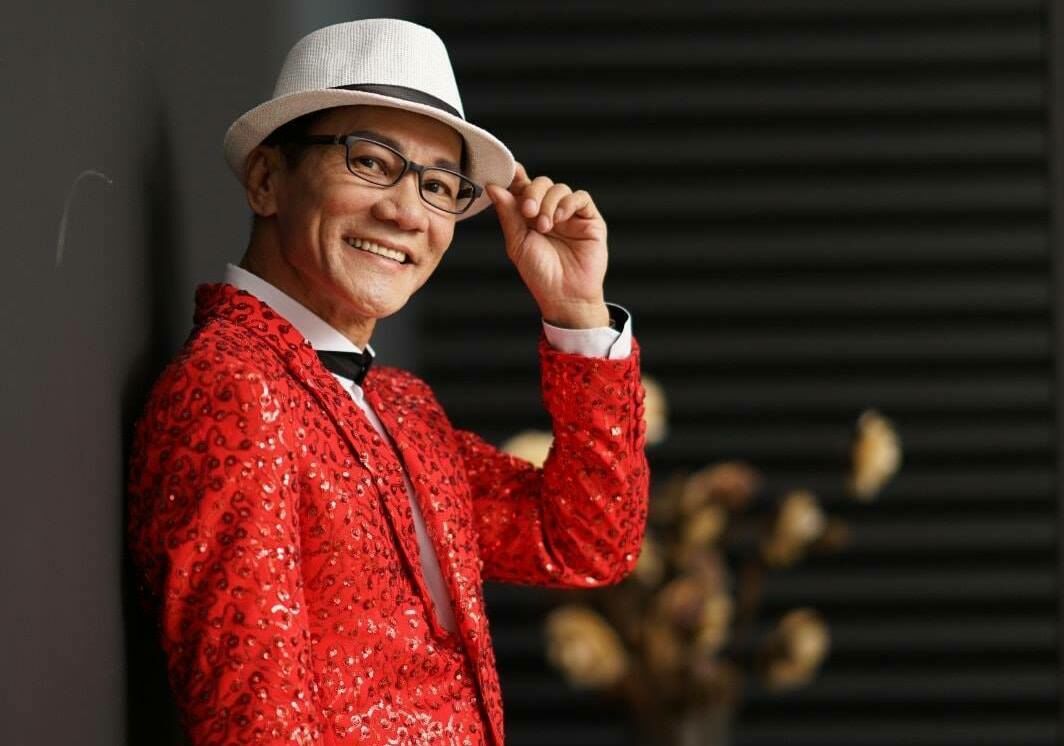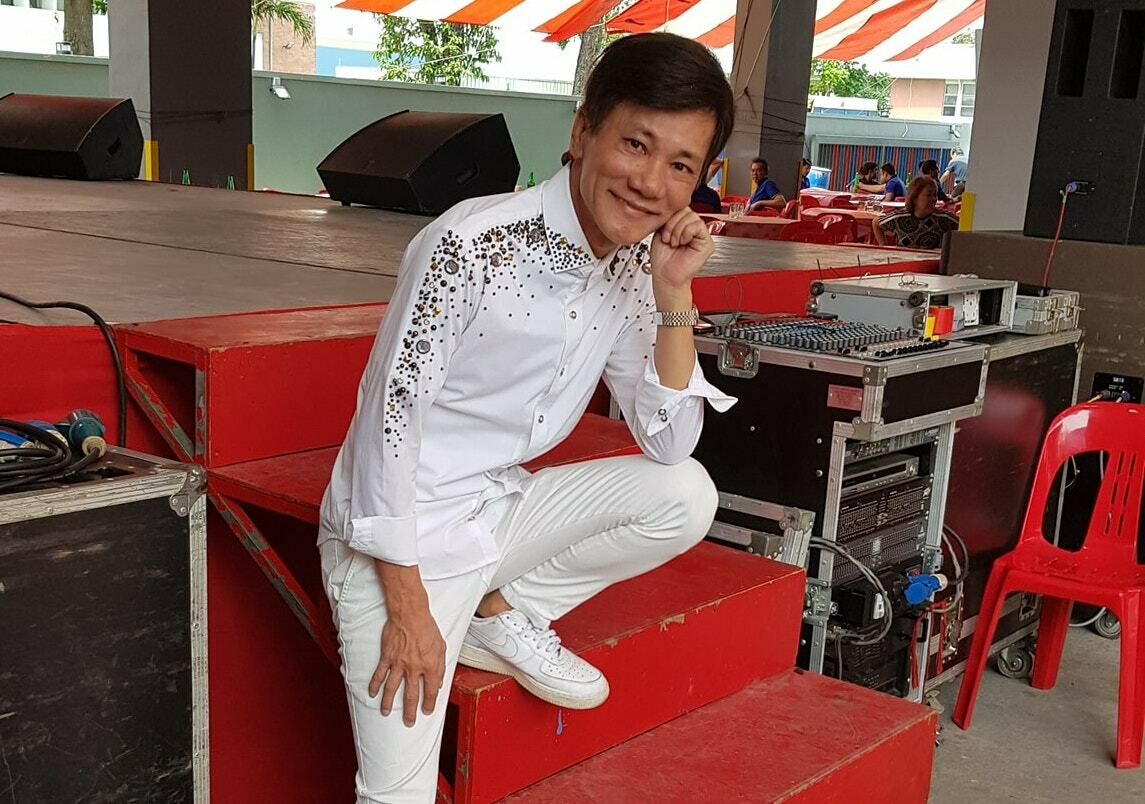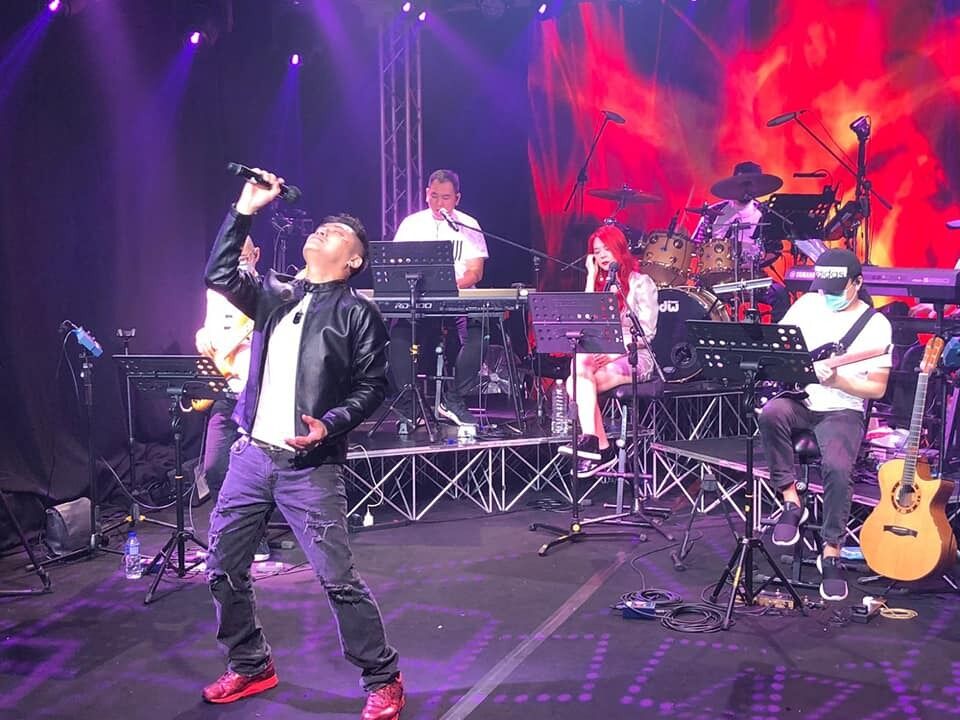More than just a form of entertainment that accompanies the Hungry Ghost Festival, getai is a unique art form and one of Singapore's most prominent cultural icons.
Since it supposedly began in the early 1940s, when Singapore was under Japanese rule, getai — which literally translates to "song stage" — has captivated thousands of Singaporeans at locations such as amusement parks and restaurants in its early days and outdoor spaces in Housing Development Board (HDB) estates and community centres in its later years.
Over the years, the getai scene has seen a huge number of changes, particularly in the last two decades. Ornate light bulbs that once lit up stages have been replaced by LED lights and screens similar those used for international concerts, and the getai catalogue — which once comprised mainly folk songs and traditional Chinese songs — now includes K-pop and contemporary Chinese tunes to keep up with the times. With the advent of technology and due to the COVID-19 pandemic, getai has recently been able to enter the online realm.
Today, this form of entertainment, which used to connect generations of Singaporeans at the grassroots level, struggles to find its place among younger audiences who hold dated views of getai and no longer find dialects relevant. Yet an army of performers continues to keep the getai flag flying by innovating and dismantling stereotypes. These performers liken the stage to a welcoming second home where they can showcase their talents and share their love for music with fellow enthusiasts.
In an interview with Hear65, veteran getai singer 王雷 Wang Lei, sister duo 2Z 姐妹 2Z Sisters, 歌台新力量 (GeTai Challenge) Season 2 runner-up 曾詠恒 Jason Chung, and getai host and singer 李佩芬 Lee Pei Fen, share getai's changes over the years and discuss the importance of preserving and promoting this Singaporean art form.
王雷 Wang Lei

(Photo credit: Wang Lei Facebook)
One of the most recognisable names in the local getai scene, 王雷 Wang Lei, 60, has dedicated nearly half his life to performing and ensuring getai's continued survival in Singapore. In his career, Wang has also made an appearance in Royston Tan's 2007 getai film 881.
Why did you decide to become a getai singer? What does getai mean to you personally?
I was the runner-up in a getai competition organised by a community centre and from there, I became a getai singer. I feel that getai is a special profession where there isn’t much differentiation among the ranks, there’s no bigger or smaller performer. [It has, however,] provided for my family for 23 years, and. I am extremely thankful for the getai industry.
What are some common misconceptions about getai? Why do you think some people have this impression of getai?
In the past, people might have thought the outfits were revealing or that getai was linked to alcohol and drinking. Getai has transformed from its early days as indoor performances in the club to events held outdoors, and these are some damaging misconceptions that have been carried over. However, when I entered the scene in 1998, the getai scene was already changing with the times and these issues had already disappeared.
In what ways has the getai scene in Singapore changed over the years?
The getai scene in Singapore has changed so much over the last 20 years. There used to be ornate light bulbs that used to be set up in many different ways, then we later started using aluminium fixtures and cloth sashes. Now, we use LED screens and lights. Previously if you wanted to hire a getai group, it would cost $1,000-$2,000. Nowadays, you’ll need at least $8,000 - $10,000 to hire one. Recent getais have also been invited to larger stages overseas and international guests have also joined our local getai performances. [But I think] the most important change has been bringing getai to TV. There was a programme called "歌台新力量 (GeTai Challenge)", and this programme won the award for Best Variety Programme at the 2019 Star Awards.
What methods do you use to keep your audiences, especially the younger ones, engaged?
There aren’t any particular methods that I use. Actually, the young people in the audience have already been to getai performances with their parents or grandparents. The TV programme 歌台新力量 (GeTai Challenge) piqued their interest and as a result, these young people decided to come down to the getai venues to check out the performances and interact with us. Sometimes they'll hold up LED boards with your name or give you flowers.
I feel that it brings the seniors even more joy as, although there’s television, there might not be any programmes that they might be interested in. Only getai interests them. So you can say that this is one of the ways in which getai is well-received.

(Photo credit: Wang Lei Facebook)
How do you think getai singers can make their performances accessible to newcomers while preserving traditions?
We have to change. Don’t just sing. Moving forward, talk shows, small theatre-like performances, and games can also become part of getai. I hope that getai can eventually be seen as and become a variety and entertainment show.
Do you think it’s important to continue promoting and preserving getai? Why?
Support from the Government [is important]. Charitable organisations and temples are the ones who are still helping to preserve the culture. [Getai] is a must-have for them every year and the same event organisers have been supporting us for decades. In recent years, there have been performances at community centres for Mother’s Day programmes, Lunar New Year events, and Mid Autumn Festival celebrations. This is the latest situation. I hope the Government will do its best to promote getai, whether it’s on TV, through broadcast, or through the Internet (through getai livestreams for instance).
What are your hopes for the future of getai?
Due to the pandemic, there haven’t been live getai performances in two years. I don’t know if the organisers will continue. Those groups that organise activities for the Hungry Ghost Festival are the most important to us. There used to be 600 shows in the past but that number has decreased by 50%. The situation has become even more dire especially for organisers without successors, who might have taken this opportunity to just close shop.
I hope that Hungry Ghost Festival organisers and temples will have successors. That they will continue to pass on this culture and tradition. Although Singapore is technologically advanced and a modern country, she needs to have her own culture. If getai were to disappear, I have to ask everyone, “What other culture does Singapore have?” Lion Dance and Dragon Dance aren’t ours. Teochew and Hokkien opera shows weren’t invented by us either. There's only getai. I really hope that everyone will do their best to promote it, and I also hope that people will come to understand and appreciate our getai culture.
2Z 姐妹 2Z Sisters

From left to right: Pek Jia Xuan and Pek Jia Wei of the 2Z Sisters (Photo credit: Goh Hock Lu)
2Z 姐妹 2Z Sisters is a sibling duo that comprises Nanyang Technological University alumni Pek Jia Xuan, 24, and Pek Jia Wei, 23. Since debuting when they were just 9 and 10 respectively, the sisters have performed at a number of events and even made it to the top 10 of 歌台新力量 (GeTai Challenge) Season 1.
Why did you decide to become a Getai singer? What does Getai mean to you personally?
We didn't really "decide" to become getai singers since we entered the industry at a young age (9 and 10). We have loved to sing and dance since we were young, so our parents' friend introduced us to a getai performance and that's how we started performing!
Jia Xuan: Getai is a place for me to interact and communicate with the older generation. I really love it when I see the smiles on their faces especially when they love our songs or are entertained by our jokes!
Jia Wei: Getai is my favourite childhood place and it has groomed me into where and who I am today. I feel that a lot of my personal growth came from my years of experience in getai.
What are some common misconceptions about getai? Why do you think some people have this impression of Getai?
Jia Xuan: When I was younger, my classmates thought that we would wear revealing costumes and thought that the performers would be very vulgar since most of the time they would speak in dialects. I wouldn't deny that in the past, it was quite common to see singers wear revealing costumes but times have changed, our costumes now are pretty fashionable haha. Another misconception people have till now is that getai is only available during the Hungry Ghost Festival, but it's actually available the whole year! I think they have this impression because they haven't been exposed to the current getai culture.
In what ways has the getai scene in Singapore changed over the years?
Jia Xuan: In the past, our stages were built using pieces of wood and were pretty unstable as there were holes in between. Lighting was simple too with just a few equipment. Now we have fanciful lights and huge stage setups which are comparable to concerts! We sang more old songs in the past, but now we have more singers who will sing newer and trendier songs. Additionally, younger people are becoming attracted to the getai scene.
What methods do you use to keep your audiences, especially the younger ones, engaged?
Jia Xuan: We try to sing more modern songs as compared to just singing the oldies. In that way, the younger audiences will be able to relate [to our performances] more. We do not focus only on singing but also try to communicate and talk to the audiences to keep them engaged.

(Photo credit: Goh Hock Lu)
How do you think getai singers can make their performances accessible to newcomers while preserving traditions?
Jia Wei: Incorporate trendy songs such as K-pop and Chinese pop songs rather than only performing the usual dialect oldies. This will help to attract a younger group of performers as nowadays, it is uncommon for the younger generation to understand dialects.
Do you think it’s important to continue promoting and preserving getai? Why?
Jia Wei: Yes, it is very important as this getai tradition has been ongoing for many many years dating back to our parents' or even grandparents' generation. It is an irreplaceable culture of Singapore that cannot be found elsewhere in the world. This should not be a culture that disappears with time, but it should evolve and improve as the world and technology advance. Just as how the hawker tradition in Singapore is highly respected, getai should be seen in the same way.
What are your hopes for the future of getai?
Jia Wei: For the younger people to remove their stereotype towards what getai is — it is not entertainment for "ghosts". It is a form of art and culture in Singapore where anyone can sing and perform songs of any genre and language. It is a platform where art can be celebrated with no judgement. I hope that getai will continue to evolve to include more young people and a wider variety of songs. More importantly, [I hope that] younger people [will choose to watch] Getai.
曾詠恒 Jason Chung

(Photo credit: Jason Chung Facebook)
曾詠恒 Jason Chung's getai journey began in the 1990s, during which he performed at a number of events. In 2018, he rose to fame after finishing the second season of 歌台新力量 (GeTai Challenge) in second place. Since then, the 48-year-old has performed at the 2020 edition of Esplanade's Huayi – Chinese Festival of Arts 华艺节 and more recently, IMC Live Global's AL!VE Vol. 7.
Why did you decide to become a Getai singer? What does Getai mean to you personally?
I am a singer/performer and that says it all. I love to perform on different stages, be it big or small. It’s still a platform for us! And I have good experiences with getai because it has brought me closer to the grassroots culture. The intimate relationship [that I have with] the audiences has also warmed my heart.
Getai actually shows how the lives that the pioneer generation led used to be so simple. Those long lost years when everyone gathered around after a hard day at work to watch performances in their own familiar dialects. [We can be] true to ourselves when we speak our own dialects, such as Hokkien, Cantonese, and Teochew.
What are some common misconceptions about getai? Why do you think some people have this impression of getai?
Singers like myself like to remain true to ourselves on stage in order to get close to our audiences. Even in big or small clubs where I used to perform, I created jokes with vulgarities to entertain them. However, some of them got upset [because] they were not used to hearing [such jokes].
Comparisons are normally made between getai and club singers. But to me, we are [all] performers. Our job is to bring joy and laughter to people who understand and appreciate what we have done.
In what ways has the getai scene in Singapore changed over the years?
Getai in its current state is like an outdoor concert with beautiful LED panels and lightings. Young and up-and-coming singers are also doing well in exploring ways of performing new songs to capture some viewers from the younger generations.
What methods do you use to keep your audiences, especially the younger ones, engaged?
I always treat my audiences or supporters like friends and I don't stress over them. I perform with a stress-free heart that is full of positive energy to get the viewers entertained. My job is to bring joy and laughter [while I am] on stage. Be it a getai roadshow, wedding gigs or even big concerts, [getai singers] perform and contribute with a big heart. I have always loved to perform songs that audiences can sing along to with all of their emotions.

(Photo credit: Jason Chung Facebook)
How do you think getai singers can make their performances accessible to newcomers while preserving traditions?
[This can be achieved if] everyone develops a wiser attitude towards the arts as he/she ages. Share and learn at the same time with the young ones and make it more exciting!
Do you think it’s important to continue promoting and preserving getai? Why?
It's going to be a new normal setting up these online livestreams amid the COVID-19 pandemic and it could be a different way of communicating the performing arts.
What are your hopes for the future of getai?
Getai culture started off in Singapore and it's hardly been seen in any of the other Asian countries. Sing with our hearts, contribute with a positive attitude, go with our emotions and let nature take its course. We do our best and God will do the rest! Life is short and [we should] enjoy it while we can.
李佩芬 Lee Pei Fen

(Photo credit: Lee Pei Fen Facebook)
Popular getai singer and host 李佩芬 Lee Pei Fen has won the hearts of many with her bubbly personality and distinctive bright vocals since she entered the getai scene 20 years ago. In 2013, she won big at the Getai Star Awards, taking home the award for Most Popular Female Host and the Online Popularity Award.
Why did you decide to become a getai singer? What does getai mean to you personally?
When I was younger, my parents were getai enthusiasts so they would bring me to watch getai performances. I would rush to the side of the stage to watch getai stars perform and sing along to songs that I knew. After a while, I was discovered by one of the hosts and that was how I ended up being a getai singer. I’ve been singing since I was around 5 years old.
Getai is my second home. It holds a pivotal and monumental place in my heart. Getai is like a set of coloured pencils that have allowed me to add rich and vibrant colours for a more fulfilling life.
What are some common misconceptions about getai? Why do you think some people have this impression of getai?
Rather than misconceptions, it’s possibly more accurate to say people had preconceived notions about getai from the very beginning, and these include performers wearing too little, old performers singing old-fashioned songs or how the audience was only made up of old people and the artists weren’t up to standard. I’ve thought about this problem and perhaps in the beginning, the negative behaviours linked to getai (e.g. drunken disturbances, overseas artists wearing bikinis) made the news more often. It could have also been due to the fact that performances by some of getai’s earlier performers were indeed controversial, and as a result, getai would have then been labelled "cheesy" and "vulgar".
In what ways has the getai scene in Singapore changed over the years?
It has changed a lot! Getai singers are getting younger and that seems to be the trend. And with the influx of international singers, getai is gradually becoming more recognised. Getai singers can now lift their heads proudly as performers. Getai has already reached a new height — performers can release records and host concerts and now getai has also moved into other platforms such as TV, and film. I personally feel that this is amazing. Furthermore, in recent years, getai has shifted online, and this transition has been quite successful.
What methods do you use to keep your audiences, especially the younger ones, engaged?
Innovate and keep up with the times. I’ll learn the songs that are trending. It’s also important to know the topics that are trending.

(Photo credit: Lee Pei Fen Instagram)
How do you think getai singers can make their performances accessible to newcomers while preserving traditions?
I think social media can be a really important bridge. As a result of the pandemic, there haven’t been any live getai performances. But because of these social platforms, I have been able to do livestreams. I’ll often receive messages from viewers saying that they tuned in to performances on their phones with their parents even though they had never seen a getai performance before. They noticed me because of these livestreams and even fell in love with getai and dialect songs. We’ll also follow each other on social media. In a way, I feel that this is how we can make newcomers interested in getai.
Do you think it’s important to continue promoting and preserving getai? Why?
Of course it’s important. Getai belongs to Singapore’s unique cultural landscape as a grassroots phenomenon. In the hearts of many, its entertainment value and essence are irreplaceable.
What are your hopes for the future of getai?
I hope that the getai culture will flourish and be passed on. For instance, many people will fly to Japan just to see the cherry blossoms. I hope that one day, many people from other countries will come to Singapore just to watch the famous Hungry Ghost Festival getai performances. There are people who have been doing this but there are not many of them, so I feel that we will continue to have this hope. I also hope that those who enjoy getai will continue to be passionate about it!
Head over to Singapore Getai 新加坡歌台's Facebook page for the latest livestream schedules and links to virtual performances.



